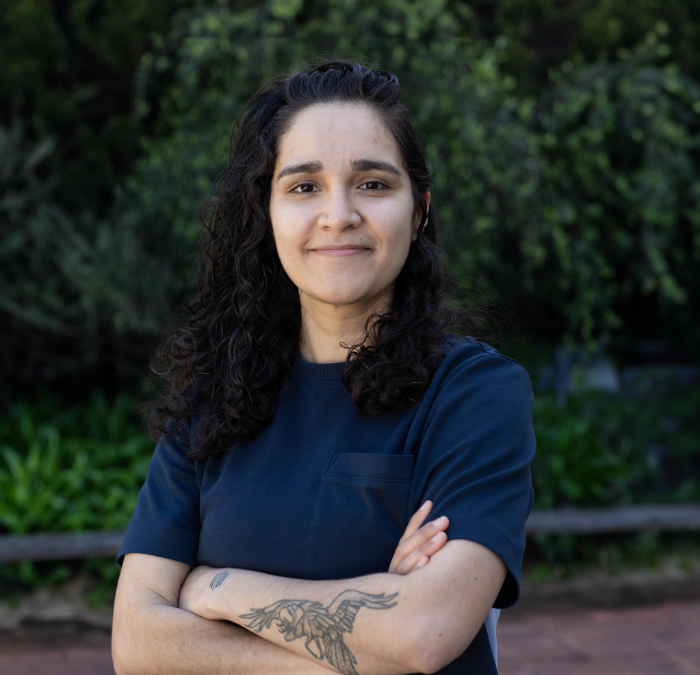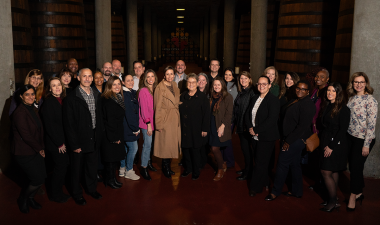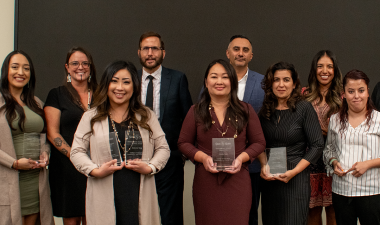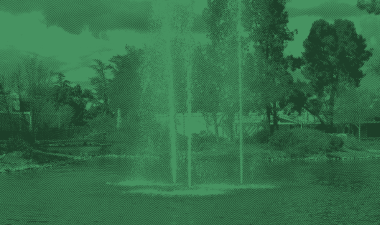As an undergraduate at Stanislaus State, Andrea Arauza Rivera was a self-described “math nerd” attending Math Club meetings and connecting with various professors in the Department of Mathematics, particularly Judith Clark, now a professor emeritus.
It wasn’t until the second year of her Ph.D. program at UC Riverside, after earning her bachelor’s degree from Stan State in 2012, that she realized she wanted to follow in the footsteps of Clark and others. As soon as she completed her Ph.D. in 2018, she was hired as an assistant professor at Cal State East Bay and quickly rose to the top of her field.
This year, Arauza Rivera earned the Mathematical Association of America (MAA) Henry L. Alder Award for Distinguished Teaching, one-of-three faculty of undergraduate students from across the country to be honored in 2023. It recognizes “beginning college or university faculty whose teaching has been extraordinarily successful and whose effectiveness in teaching undergraduate mathematics is shown to have influence beyond their classrooms.”
Nominated by her department chair, Julie Glass, who claims, “Andrea is amazing,” Arauza Rivera won the organization’s Northern California regional award and was thus nominated for the national honor.
Glass’s nomination letter for her colleague is glowing.
“Dr. Arauza Rivera’s commitment to students and to infusing her values of joy, community, justice and love in all that she does changes lives and open doors,” Glass wrote. “Her generosity in creating and sharing her materials impacts other instructors at Cal State East Bay and beyond. She thinks deeply about her work and holds the community in her heart as she lifts up our students to be their best selves.”
Arauza Rivera’s teaching style stems from looking at her students and seeing herself, her siblings, cousins and friends she grew up with in Oakdale.
That familiarity led her back to a CSU classroom and was a benefit when she interviewed for the position at Cal State East Bay.
She settled into teaching a range of courses from precalculus to functional analysis — with fractal geometry the subject of her research — and calculus, the course she took at Modesto Junior College that set her on her path as a math major.
Then, Glass approached her about revising the department’s Math Contributions to Modern Society course, and Arauza Rivera taught it for the first time in fall 2022.
The course is broken into four units: a study of the women featured in the film “Hidden Figures”; how to use data science to understand food deserts; voting and gerrymandering theories; and fair allocation of resources.
She was aided in redesigning the course by work she’d done with an MAA Tensor SUMMA (Strengthening Underrepresented Minority Mathematics Achievement) Foundation grant.
“It allowed me to run these small research projects, one-semester long research projects, with students who weren’t necessarily math majors or not necessarily juniors and seniors,” Arauza Rivera said. “They were younger students, essentially taking pre-calculus, their introductory math classes. The research projects focused on these kinds of topics that center math along with social, political or cultural topics. I had to generate a lot of ideas for those projects, and I got to do a lot of those projects in that program. I had material going into the redesigned class.
“The food desert module is based on a project I did with two students. We wrote and got an article published. I essentially teach the material from the paper we wrote.
“Often, the students have a lived experience in that topic. It’s a tough conversation to have. It’s usually a tough emotional module to go through, but we get through it together.”
Having compassion for her students makes her effective, according to Glass.
Arauza Rivera attributes her success to constantly learning and trying new teaching methods in her courses.
Although given teaching opportunities while at UC Riverside, it was a professional development program offered by MAA the summer before her first semester at East Bay that best prepared her, she said.
“I experimented with some active learning strategies when I was a graduate student, but out of instinct it made the most sense if they would work on a problem before I told them the answer,” she said. “Nobody learns from watching you do something. It doesn’t matter that I know how to do it. The point is that you know how to do it.
“Some things felt very obvious, but I had a more organized approach to planning active learning activities in my classes after I had done some professional development.”
Despite her national award, Arauza Rivera looks to improve her craft.
“You’re never done with becoming a teacher,” she said. “You’ve never mastered it. It’s always evolving. I approach it with a sense of humility and knowing I haven’t figured it out. I probably never will. It’s the nature of the job. It involves practice to be an educator.”
She also sees possibilities for expanding math’s social justice role.
“I’m hoping to start working with community organizations and trying to figure out how to get students trained in mathematics and data analysis working for these organizations and building partnerships,” she said.




